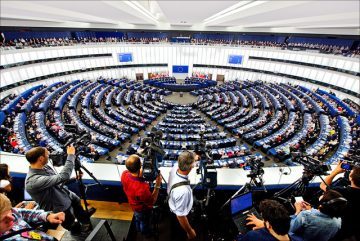
Nicholas Mulder in n+1:
Where most of the charges that the right levels against the EU are hard to take seriously, the left has produced cogent and sophisticated critiques of the organization. Leftist skepticism about the project of integration goes back to the beginnings of the European Economic Community, but was generally a minority current; the Eurozone economic crisis and Britain’s ongoing attempts to depart from the EU have reanimated this tradition, with some arguing for a left exit, or “Lexit.” The Lexit position points to a split among the Union’s left-wing critics: varying diagnoses of the EU’s democratic deficit and neoliberal bias in turn suggest different paths to a more progressive and democratic Europe.
Currently, there are two broad varieties in left-wing anti-Europeanism. The first line of criticism is that the EU is an unaccountable technocracy constitutionally opposed to democracy. On this reading, unelected Eurocrats at the European Commission threaten national sovereignty as they enforce budgetary rules, laws, and regulations with no accountability. A related but distinct accusation is that the EU is terrible for national democracy because it is a vehicle for German empire. On this reading, the technocrats are either simply doing the Germans’ bidding, or else the Germans are responsible for long ago having rigged the rules of the union in favor of the continent’s largest and most powerful country.
These left-wing analyses focus on a real problem: the constraints of current EU and Eurozone economic policies, which have deepened and prolonged the continent’s crisis. Yet in their urge to counter the tyranny of the market, left nationalists misread the nature of the neoliberal project in European politics.
More here.
